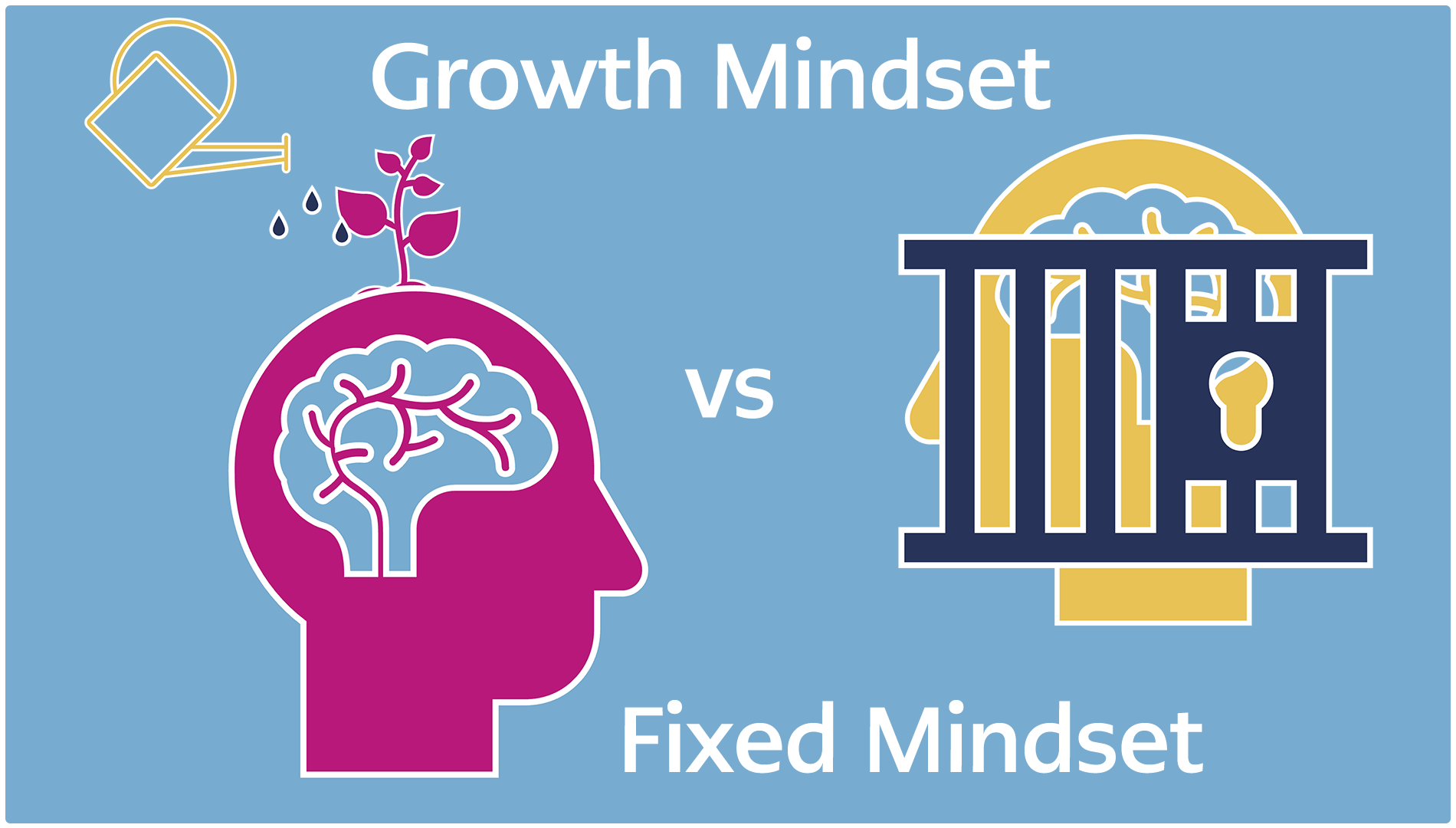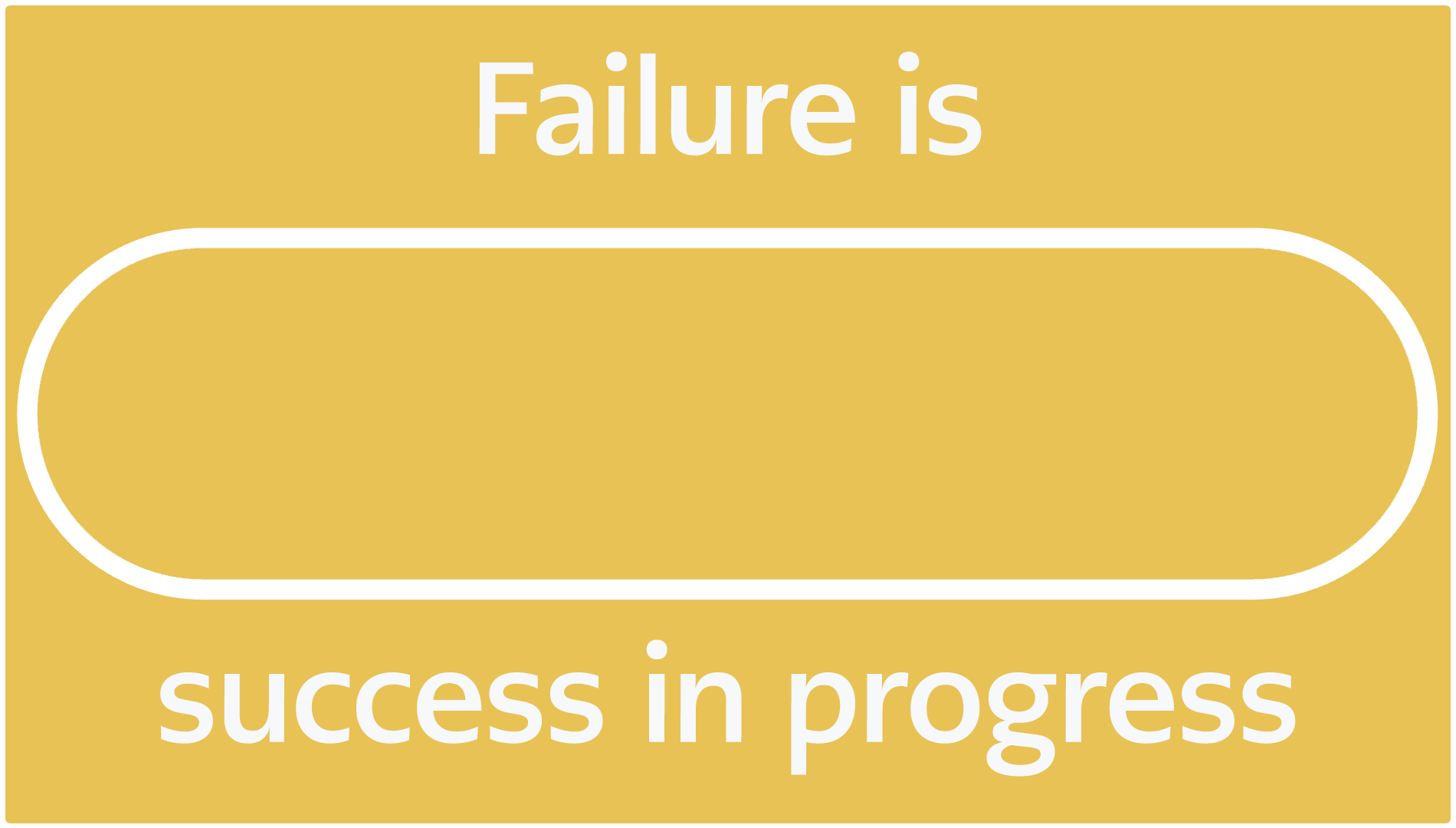

Based on psychologist Carol Dweck’s pioneering research on mindset.
Your mindset influences everything; creative risk-taking, how you view feedback or whether you finish difficult tasks.
Definitions
Fixed mindset:
In a fixed mindset, you believe that your basic qualities such as intelligence and talent, are simply fixed traits. You will also believe that talent alone creates success rather than the effort you put in.
This means, if you’re not good at something you typically think you’ll never be good at it. You may also think that there’s nothing new that you can learn because you see your skills as being fixed.
Growth mindset:
In a growth mindset, you believe that your intelligence and talents have the potential to grow. You thrive on challenge and see failure as a necessary steppingstone for growth and development.
This means that you think that your skill level can develop and improve with the amount of energy, time, and effort you put into doing so.
There are 3 key differences between fixed and growth mindset:
1. Effort
When someone is faced with difficult work, a person with a fixed mindset may not believe they have the inherent talents and abilities to complete this task.
Reversely, someone who has a growth mindset believes that great outcomes often require time, focus and a great deal of effort.
2. Challenge
Someone with a fixed mindset may be reluctant to being challenged. This could be from a fear of failure, or it could be down to the fact that people with a fixed mindset are results driven, so trying to visualise the completion of a project when working on developing a new skill can be difficult.
People with a growth mindset are excited and motivated by challenge because they know they can always learn something valuable from their experiences.
3. Failure and feedback
Failure can seem scary and embarrassing to someone with a fixed mindset because they believe their talents and abilities are innate to them. If they fail a task, they fail at being who they are.
For someone with a growth mindset, they can recognise that failure is an inevitable part of innovation. They see failure as an opportunity to learn from their mistakes and therefore are open to criticism.

Failure is key to success
First of all, you should start by challenging your ideas about making mistakes and failing. Consider the world’s greatest innovators and read what they have said about failure, take Albert Einstein as an example when he said, “Failure is success in progress.”
Think about how you can learn from the opportunity.
Learn to trust yourself
Don’t limit yourself by only believing someone else’s opinion of you. Only you know your full potential and only you can bring it out. Lean into what makes you different and see where it takes you.
Pay attention to your inner critic
If your first thought when you are faced with a challenge is, “I can’t do that”, try and think about whether that’s a helpful or unhelpful thought. Instead think “I can do that if I practice”. This change won’t happen overnight, it will be a continuous process of reminding yourself to be open to more possibilities. Keep moving forward.
It can be helpful to stop and take a few moments to practice some mindfulness exercises such as breathing or meditation while learning to do this. Different techniques work for different people, if breathing isn’t helpful, there’s lots of other ways you can manage your stress levels to help change a thought pattern. Singing, humming, shaking out your body, stretching and even dancing can regulate the nervous system too. Find which works best for you.
Invest in yourself
Think of learning as investing in yourself; if you invest time, effort (and in some cases money) into learning and developing you can actually increase your self-esteem because a key element of feeling good about yourself is feeling competent at the things you do. Tell yourself you’re good enough.
Remember that a growth mindset can not only improve how you work, but it can also actually change your brain
Every time we learn something new our brain forms new connections and neurons, making existing neural pathways stronger or weaker. Focus on creating helpful pathways that reinforce feelings of positivity, self-worth, and confidence.
If you want to learn more about Growth Mindset and how we can help you unlock potential within your business, please get in touch.
Make sure you subscribe to our YouTube channel for regular free video content.
Join our newsletter
Sign up to keep up to date with exclusive offers, updates and more.
UK & NI:
ROI:
Email: